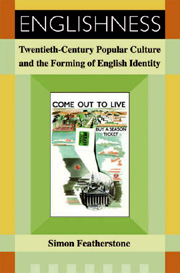6 - Race
Published online by Cambridge University Press: 12 September 2012
Summary
The death of the Jamaican activist Marcus Garvey in West Kensington in May 1940 marked the end of a formative period of black politics in England and its empire. Garvey, leader of the Universal Negro Improvement Association, editor and publisher of Negro World and Black Man and erstwhile Provisional President of Africa, had been a declining political force for some years before his death. His greatest influence had been exerted in the years after the First World War, particularly in the United States, where his populist activism and organisational skills had been influential in an African-America radicalised by the formation of politically articulate black communities in the northern cities and by the return of war veterans. Garvey's global organisation did not survive intact his imprisonment in the 1920s or the changed politics of the 1930s in which aspirations to an African empire seemed less relevant to a new generation of anti-colonial activists. Nevertheless, his presence in London at the beginning of the Second World War and his legacies of radical racial philosophy, a transnational black political organisation and an engagement with political structures of metropolitan England heralded a new relationship between English identity, colonialism and race.
Garvey and younger anti-colonial activists like C. L. R. James established geographical and intellectual networks that contributed to the transition of England from an imperial power to a postcolonial nation in the period after the Second World War.
- Type
- Chapter
- Information
- EnglishnessTwentieth-Century Popular Culture and the Forming of English Identity, pp. 103 - 120Publisher: Edinburgh University PressPrint publication year: 2008



